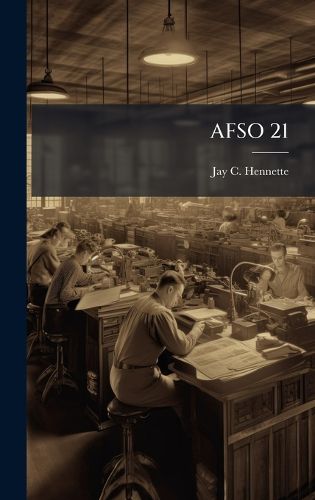Readings Newsletter
Become a Readings Member to make your shopping experience even easier.
Sign in or sign up for free!
You’re not far away from qualifying for FREE standard shipping within Australia
You’ve qualified for FREE standard shipping within Australia
The cart is loading…






AFSO 21 is a recent Air Force initiative aimed at improving processes and eliminating waste from daily operations. This thesis provides, through industry benchmarking, techniques used by private companies to leverage process improvements through the effective use of best practices. Specifically, this thesis addresses four areas critical to effective knowledge management: finding ways to create knowledge repositories, improving knowledge access, enhancing cultural support for knowledge use, and managing knowledge as an asset. These four areas were addressed through case study comparisons of best practice programs at Boeing, General Motors, Raytheon and the Minnesota Mining and Manufacturing Company (3M). This study resulted in eight recommendations that, if implemented, could enhance best practice knowledge management within the Air Force.
This work has been selected by scholars as being culturally important, and is part of the knowledge base of civilization as we know it. This work was reproduced from the original artifact, and remains as true to the original work as possible. Therefore, you will see the original copyright references, library stamps (as most of these works have been housed in our most important libraries around the world), and other notations in the work.
This work is in the public domain in the United States of America, and possibly other nations. Within the United States, you may freely copy and distribute this work, as no entity (individual or corporate) has a copyright on the body of the work.
As a reproduction of a historical artifact, this work may contain missing or blurred pages, poor pictures, errant marks, etc. Scholars believe, and we concur, that this work is important enough to be preserved, reproduced, and made generally available to the public. We appreciate your support of the preservation process, and thank you for being an important part of keeping this knowledge alive and relevant.
$9.00 standard shipping within Australia
FREE standard shipping within Australia for orders over $100.00
Express & International shipping calculated at checkout
AFSO 21 is a recent Air Force initiative aimed at improving processes and eliminating waste from daily operations. This thesis provides, through industry benchmarking, techniques used by private companies to leverage process improvements through the effective use of best practices. Specifically, this thesis addresses four areas critical to effective knowledge management: finding ways to create knowledge repositories, improving knowledge access, enhancing cultural support for knowledge use, and managing knowledge as an asset. These four areas were addressed through case study comparisons of best practice programs at Boeing, General Motors, Raytheon and the Minnesota Mining and Manufacturing Company (3M). This study resulted in eight recommendations that, if implemented, could enhance best practice knowledge management within the Air Force.
This work has been selected by scholars as being culturally important, and is part of the knowledge base of civilization as we know it. This work was reproduced from the original artifact, and remains as true to the original work as possible. Therefore, you will see the original copyright references, library stamps (as most of these works have been housed in our most important libraries around the world), and other notations in the work.
This work is in the public domain in the United States of America, and possibly other nations. Within the United States, you may freely copy and distribute this work, as no entity (individual or corporate) has a copyright on the body of the work.
As a reproduction of a historical artifact, this work may contain missing or blurred pages, poor pictures, errant marks, etc. Scholars believe, and we concur, that this work is important enough to be preserved, reproduced, and made generally available to the public. We appreciate your support of the preservation process, and thank you for being an important part of keeping this knowledge alive and relevant.